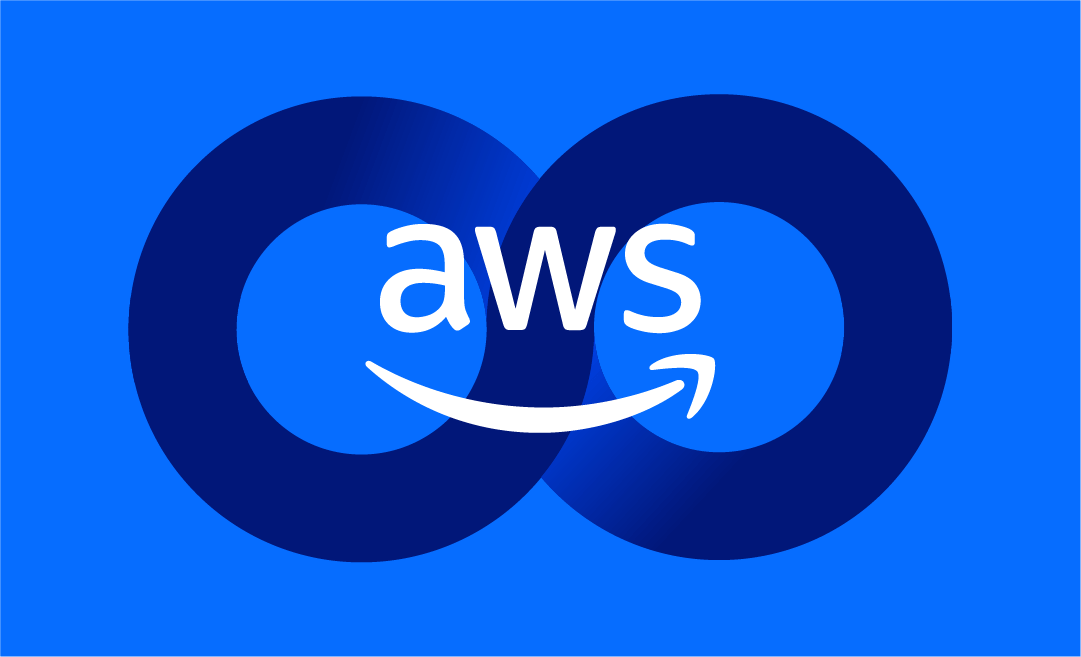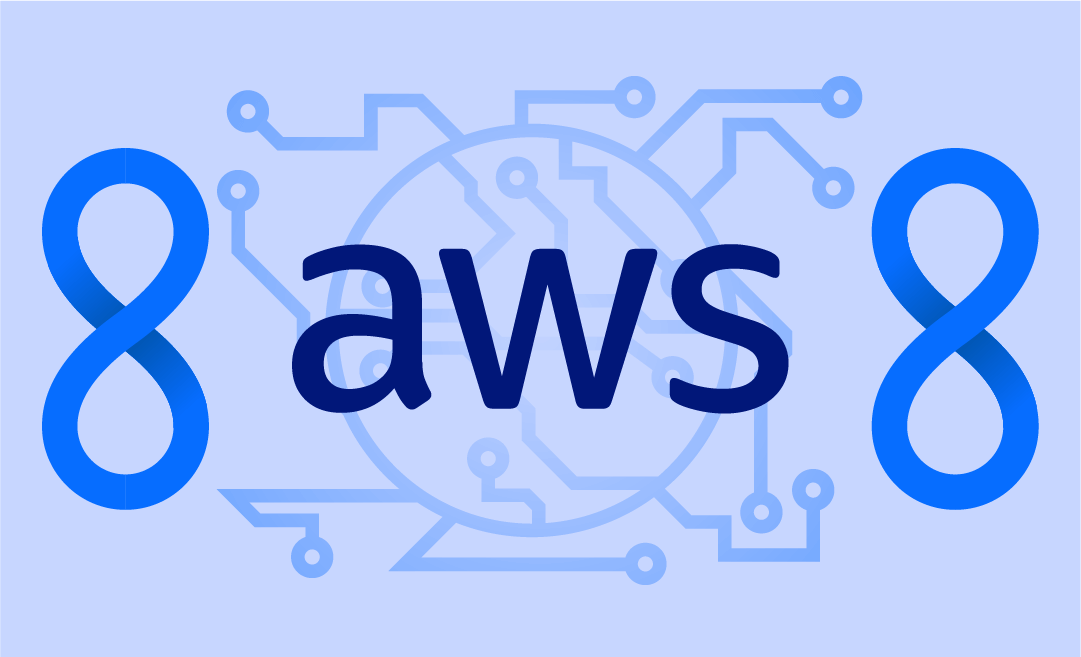AWS DevOps Engineer Roles and Responsibilities: Mastering Cloud Operations
The author of this article is tech expert Pieter Murphy.

Welcome to our brief exploration of the AWS Cloud DevOps Engineer job description. This article outlines their responsibilities, skills, and contributions to seamless integration, automation, and operational excellence in cloud environments.
It delves into the qualifications, essential skills, and duties of AWS DevOps Engineers and the different types of roles within the field.
The article also highlights the tech stack commonly used by these professionals to master cloud operations. It is a great place to start exploring how to become DevOps proficient in AWS.
Let’s get started.
What Is an AWS DevOps Engineer?
An AWS DevOps Engineer is an IT professional with unique skills and knowledge in system administration, software development, and automation.
They bring together the operations and development teams, thus streamlining the software delivery process and facilitating effective collaboration.
AWS DevOps Engineers aim to achieve continuous delivery, integration, and deployment by improving Infrastructure, automating workflows, and ensuring smooth operations.
AWS DevOps Engineer Job Description
The job description for AWS DevOps engineers expects them to be able to:
- Implement the best practices for monitoring applications and create recommendations on how the application team can improve their applications.
- Build a secure, robust, and scalable cloud infrastructure on Amazon Web Services.
- Write documentation, sample code, tutorials, best practices recommendations, and technical presentations that adapt to different levels of critical business and technical stakeholders.
- Build tools, automation, and standards to scale the development team.
- Ensure smooth running of production systems and test or staging environments.
- Have solid AWS services experience including in VPC, EC2, Ebs, S3, ASG, Cloudwatch, Lambda, and Load Balancer.
- Utilize Container & Container Orchestration tools – AWS ECS, Docker, and Kubernetes.
- Have continuous development and testing techniques together with documentation.
- Have technical knowledge in automated delivery products, tools, or technology.
For novices in the industry, it is also essential to develop communication skills, especially by understanding the IT language of DevOps engineers.

Types of AWS DevOps Engineer
There are different roles and specializations within the AWS DevOps engineer job description. Some of these roles can often overlap, and a DevOps engineer may need to wear multiple hats depending on the organization's needs.
The specific skills and responsibilities may vary, but they all revolve around using AWS services to automate, deploy, and manage infrastructure and applications efficiently.
They include:
- DevOps Engineer: A generalist who works with AWS services to automate, manage, and optimize the deployment and Infrastructure of applications.
- Cloud Architect: Focused on designing and implementing Amazon Web Services cloud solutions, considering scalability, security, and high availability.
- SysOps Administrator: Responsible for managing AWS resources, ensuring systems are up and running, monitoring, and troubleshooting.
- DevSecOps Engineer: Integrates security into the DevOps pipeline, focusing on creating secure CI/CD pipelines and ensuring compliance.
- Automation Engineer: Specializes in automating infrastructure provisioning, deployment, and management using AWS tools like CloudFormation and Terraform.
- Containerization Specialist: Works with container technologies like Docker and Kubernetes on Amazon Web Services to facilitate containerized application deployment.
- Serverless Engineer: Specializes in serverless computing on Amazon Web Services, using services like AWS Lambda, API Gateway, and DynamoDB for building serverless applications.
- CI/CD Engineer: Builds and optimizes continuous integration and delivery pipelines using AmazonWeb Services DevOps tools.
- Infrastructure as Code (IaC) Engineer: Specializes in creating and managing Infrastructure using code, typically with tools like AWS CloudFormation or Terraform.
- Performance and Optimization Engineer: Optimizes Amazon Web Services resources for cost efficiency, performance, and scalability.
Qualifications and Skills of AWS DevOps Engineers
Qualifications for AWS DevOps engineers include Amazon Web Services certifications, proficiency in scripting and programming, expertise in CI/CD and IaC tools, containerization knowledge, version control skills, and experience in security, networking, and database management on Amazon Web Services.
Practical experience and continuous learning are crucial, necessitating that you do everything from intern in positions you intend to work to reading useful books for a novice DevOps engineer.
Essential Skills for AWS DevOps Engineers
1. Continuous Delivery
An AWS DevOps Engineer needs a deep understanding of continuous delivery (CD) concepts, theory, and real-world applications of them.
They need experience working with CD tools and systems and a deep understanding of their inner workings to integrate techniques and tools to create wholly functioning, cohesive delivery pipeline
Merging, committing, building, packaging, testing, and deploying code are all important in the software release. Using the native AWS services requires familiarity with AWS CodeBuild, CodeDeploy, and CodePipeline.
Other tools and systems include Jenkins, GitHub, GitLab, Travis, and Spinnaker.
2. Observability – Application Performance Monitoring
This skill involves monitoring, logging, and alerting. Observability is a critical area of work as it lets you know what an application is doing before sending it to production.
An AWS DevOps Engineer ensures that an application and the systems it runs on implement proper logging, monitoring, and alerting solutions.
Application Performance Monitoring (APM) provides important insights into an application's inner workings, making it much easier to debug custom code. APM solutions include AppDynamics, New Relic, and Dynatrac
Amazon Web Services requires deep knowledge of Amazon CloudWatch, including CloudWatch Logs, CloudWatch Agent, CloudWatch Events, and CloudWatch Alarms. It is also essential to be familiar with AWS X-Ray, Amazon Elasticsearch Service, Amazon SNS, and Kibana.
Other useful tools in this space are Logrotate, Syslog, Logstash, Nagios, Filebeat, InfluxDB, Grafana, and Prometheus.
3. Cloud Skills and Best Practices
AWS DevOps Engineers are expected to be experts on Amazon Web Services tools, services, and best practices. Product development teams require the AWS DevOps expert to answer various questions on benefits and ask for recommendations. Therefore, the expert should be well-versed in numerous services and their limitations and alternatives (non-AWS).
4. Infrastructure as Code
AWS DevOps Engineers ensure that systems under them are built repeatable by utilizing Infrastructure as Code (IaC) tools like CloudFormation, Pulumi, Terraform, and AWS CDK (Cloud Development Kit).
IaC ensures that cloud objects are version-controlled and documented as code and can be conveniently replaced using a proper IaC provisioning tool.
5. Containers
Numerous modern organizations are moving away from the traditional deployment models of apps being pushed to VMs in favor of a containerized system landscape. Configuration is much less critical in the containerized world.
An AWS DevOps engineer's responsibilities include being familiar with the new container-related tools such as Docker Swarm, Docker Engine, Systemd-spawn, container registries, LXC, Kubernetes, and many mor
6. Configuration Management – Infrastructure as a Service
For Infrastructure as a Service (IaaS) about virtual machines, once ec2 instances have been launched, their configuration and setup should be codified with a Configuration Management tool.
The most popular options in this space are Chef, Ansible, SaltStack, and Puppet.
7. Automation
To automate everything, a DevOps engineer AWS job description asks for expertise and experience with scripting languages like GNU utilities, bash, Python, PowerShell, and JavaScript. In addition, he needs to be familiar with AWS Lambda, cron, SNS, and CloudWatch Events
8. IT Operations and Production Systems Management
IT operations are often associated with monitoring, logging, and altering. They must be in place to operate, manage, or run production systems properly.
Another significant role of the Ops is troubleshooting, responding to, and resolving issues as they occur. An Amazon Web Services DevOps Engineer needs experience troubleshooting and working with operating systems like Ubuntu, Amazon Linux, CentOS, Windows, and RedHat Enterprise Linux.
9. Collaboration and Communication
The last skill that an AWS DevOps Engineer needs is the cultural aspect of DevOps. DevOps is invested in breaking down barriers between development and IT operations.

Responsibilities of AWS DevOps Engineers
The following are the AWS DevOps Engineer Roles and Responsibilities.
- Automation: DevOps Engineers automate workflows and processes by utilizing frameworks and tools that streamline deployment, testing, building, and monitoring processes. This includes infrastructure provisioning, configuration management, and code deployment automation.
- Collaboration: DevOps Engineers create collaboration between operations and development teams, thus breaking down silos and fostering practical cooperation and communication
- Continuous Integration and Delivery: They maintain and implement delivery pipelines and continuous integration, enabling frequent software releases while at the same time ensuring stability, quality, and scalability.
- Monitoring and Troubleshooting: DevOps Engineers devise monitoring solutions and establish effective alerts to identify and address problems promptly. They must possess strong troubleshooting skills to resolve issues and minimize downtime.
- Infrastructure Management: DevOps Engineers enhance Infrastructure such as cloud platforms, networking, servers, and storage. They ensure the availability, scalability, and security of various infrastructure-as-code practices.
Tech Stack Used by AWS DevOps Engineers
AWS DevOps Engineers use tools like Git for version control, Jenkins for CI/CD, Docker for containerization, Terraform for IaC, monitoring tools like AWS CloudWatch, and scripting in Python and Bash.
The job description for AWS DevOps engineer also focuses on automation and collaboration tools.
Master the Cloud With AWS DevOps Engineers
Amazon Web Services DevOps Engineers are vital for efficient cloud operations. The roles and responsibilities of AWS DevOps engineers include diverse skills and specialities, and a tech stack for automation and collaboration makes them essential for modern organizations.
As the cloud landscape evolves, these professionals remain at the forefront, driving excellence in cloud-based projects.

.png)
